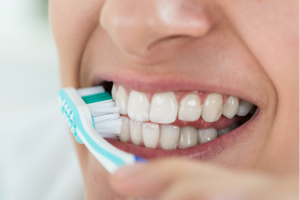
Question:
I am 35 years old. Recently, I felt pain in my lower right corner of the teeth, so I visited the dentist for a diagnosis. My dentist said that I had a cavity which required a filling. What could be done to prevent toothaches or tooth decay, and how often should we go for a dental check-up?
Answer:
It can be frustrating to take care of your teeth with daily brushing and flossing yet still develop cavities. The truth is that oral hygiene is only one part of the picture. Several other factors can increase your risk of tooth decay.
Genetics and Enamel Strength
Some people are genetically predisposed to dental caries. If you have naturally thin enamel, your teeth are more vulnerable to decay.
Saliva and Dry Mouth
Saliva protects teeth by neutralizing acids. However, if you suffer from dry mouth, your enamel may break down more quickly. In such cases, your dentist may prescribe medication to improve salivary flow.
Brushing, Flossing, and Mouthwash
Sometimes, cavities form because brushing or flossing is not done effectively. Bacteria often hide between teeth, where toothbrush bristles cannot reach. Using dental floss and a fluoride mouthwash can help target these areas. As a quick test, if your teeth feel as smooth as glass after brushing, you’ve done a good job.

Diet and Sugary Foods
Diet plays a significant role in oral health. Sugary and acidic foods, such as sodas and sweets, feed harmful bacteria. The acids produced weaken tooth enamel and lead to decay. To reduce risks, rinse your mouth after consuming carbohydrates or acidic foods.
Fluoride for Stronger Teeth
Fluoride helps strengthen enamel, making teeth more resistant to cavities. You can get fluoride through toothpaste, mouthwash, or professional treatments from your dentist.
Medical Conditions and Treatments
Certain health issues, such as diabetes or autoimmune deficiencies, can increase the risk of cavities. In addition, chemotherapy or radiation treatment around the head and neck often reduces saliva production, which further promotes tooth decay.
Teeth Grinding and Clenching
Grinding or clenching your teeth places excessive pressure on them. Over time, this can cause cracks and fractures, which accelerate tooth decay.
How Often Should You See the Dentist?
A dental check-up every six months is generally recommended to detect early signs of decay and prevent problems before they worsen. However, your dentist may adjust the frequency based on your individual oral health. PRIME











